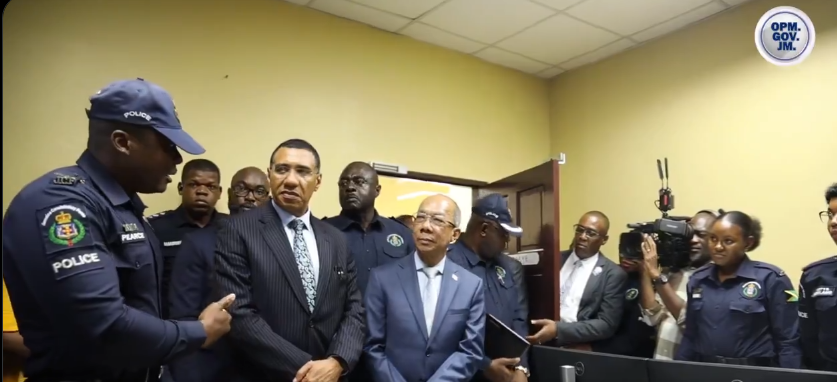Dear Sir/Madam,
What about Surveillance Laws in Jamaica?
Is it legal for the Government of Jamaica to install surveillance cameras to monitor Jamaicans without first passing laws that explicitly authorize such actions—laws that, by nature, could infringe on our sacred right to privacy?
The Prime Minister of Jamaica Andrew Holness tweeted:
This is what technological integration into national security looks like. JamaicaEye represents an ecosystem that will transform how we prevent, detect, and respond to crime. By leveraging a growing network of CCTV cameras across the island, this initiative allows law enforcement to have real-time access to public feeds, improving surveillance, enhancing coordination, and ultimately helping to save lives. The system is built on transparency, accountability, and innovation, ensuring that the rights of law-abiding Jamaicans are respected while giving our police the tools they need to stay ahead of criminal activity.
Andrew Holness, PM of Jamaica via Twitter (@andrewholnessjm)
Questions:
- Have Jamaicans been informed—truly informed—about what this surveillance entails and the implications it may hold for their private lives? Are there safeguards in place to ensure that our rights are not trampled in the name of security? And, more pressingly, do these cameras operate within the boundaries of existing Jamaican law?
- Where, precisely, are these cameras being erected? Are they meant to capture traffic violations or to deter and document actual crimes occurring in public spaces? What do our existing laws say about surveillance equipment and its admissibility in Jamaican courts? Is such evidence plausible, or is it a slippery slope toward authoritarian oversight?
- This brings us to the heart of democratic governance: Has Prime Minister Andrew Holness engaged in a transparent dialogue with the Jamaican people? Does this policy require a referendum or at least bipartisan support in Parliament to move forward?
- Moreover, where is this surveillance technology coming from, what is the cost to the Jamaican taxpayer, and how long are we committed to this arrangement?
Jamaicans are a proud, free people. Let us not trade our liberty for security without question or consent.
Nevertheless, I like the idea but just as the legalization of Obeah requires open discussions, so does surveillance that may affect Jamaican peoples freedoms and privacy. So this has to be an open discussion and supported by the people. Because Jamaicans may challenge the constitutionality of this system.
Sincerely,
Rev. Renaldo C. McKenzie
Submitted to the Jamaica Gleaner for publication.
Renaldo McKenzie is author of Neoliberalism, Globalization, Income Inequality, Poverty and Resistance.



